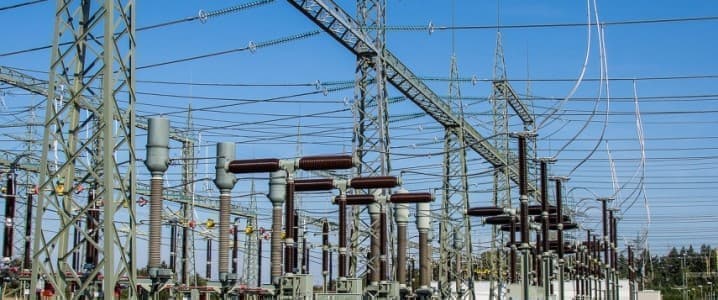The Environmental Protection Agency (EPA) will try again to limit carbon dioxide emissions from power plants, having failed to do so during the Obama administration. Well, if at first you don’t succeed… Electric power generating plants account for about 31% of US carbon dioxide emissions, so this is not a minor event. This time around the EPA will not tell power generators affirmatively what to do (that is, install certain devices) but rather less aggressively what not to do (do not emit the carbon dioxide). The more corporate-friendly idea here is to permit privately owned power generators the discretion to pick the best means of emissions control. A market-friendly and technology-friendly solution, it would seem.
However, let’s not get into technical details. We expect Republican attorneys general will take even these proposed tepid emissions controls to court. And more importantly, we expect the Supreme Court to find a way to invalidate the EPA’s actions— despite a previous Supreme Court having told the EPA to view carbon dioxide as a pollutant. Sen. Joe Manchin, conservative Democrat from coal producing West Virginia, said the Biden administration is “hellbent to regulate coal and gas-fueled power plants out of existence…” (In the past three years, natural gas burners made up about one-sixth of new capacity additions, coal none.) A lawyer for coal fired power stations objected to the administration’s timetable for 2038 compliance with CO2 emissions controls. (The industry only had 20 plus years of warnings, of course. Now they are surprised?) The Edison Electric Institute, the US investor-owned electric company lobbying group, said emissions would go down anyway. But EEI would “assess EPA’s new regulations through the lens of whether they align with our priorities…” ( Who is in charge here?) Related: Venezuela Plans To Issue LNG Export Licenses To European Majors
Practically speaking, in an age of CO2 emissions reductions, the owner of a fossil fuel power generating plant would have three choices: close down, promise to reduce emissions using carbon capture and sequestration (CCS), or mix the carbon emitting fuel with a non-carbon fuel (such as hydrogen) to produce a lower carbon fuel blend. The energy industry, for some time, has boosted CCS as the right solution for CO2 emissions reductions: attack the emissions not the fuel. Now, with an increasing opportunity to use CCS, they are reluctant to do so. Too expensive, no proof of actual reliability? If CCS is not really ready for prime time, so to speak, is the continuing industry promotion of it nothing but green washing? Or is CCS really a niche technology, an effective emissions remediation solution but only for a limited number of applications, which we suspect?
The other emissions remediation strategy is to blend presumably cleaner hydrogen into the combustion process while displacing some fossil fuel usage. Since hydrogen does not produce carbon dioxide when burned, the mixture would reduce overall carbon dioxide emissions. But hold on, what about the carbon emissions produced when making hydrogen? In the case of “blue”hydrogen, made from natural gas, the carbon dioxide will be stored underground using CCS. But if CCS is unreliable or too expensive, then what? Why not just utilize green hydrogen (no carbon fuels used in the production process)? From an energy industry perspective this doesn’t work either. It undermines the argument that natural gas itself is an “almost” green fuel.
What’s the bottom line here amidst competing technologies and emissions claims? In the US, coal usage as a boiler fuel will continue to slide for economic reasons (it’s more expensive than gas) despite Senator Manchin’s rhetoric. Electricity generators will continue to erect gas fired power plants as long as they can. If/when emissions regulations finally take hold in the future they’ll plead hardship and public necessity as an excuse not to close down their facilities. CCS will move ahead but without impetus from a potentially big user. Green hydrogen, though, might emerge as a winner. Electric companies (and other industrial power users) might want to appear greener without making significant new investments. Green hydrogen could provide a veneer of environmental respectability.
Technological visionaries and entrepreneurs like Edison, Tesla, Westinghouse, Sporn, and Lee, used to dominate the electric power industry in the US. These were individuals not afraid to embrace new ideas, challenge vested interests, and to develop and ultimately fight over new markets. (Edison versus Westinghouse in the currency wars is pretty epic.) As we have noted elsewhere, the US utility industry spends 0.1% of revenues on research and development, so it’s not realistic to expect much idea generation on such a minuscule budget. But more than anything this indicates industry complacency and embrace of the status quo. Now, the electric utility industry is hesitating to take advantage of an opportunity bigger than anything it has seen since the invention of air conditioning —selling green electricity to further electrify the economy. Sounds more myopic than visionary.
By Leonard Hyman and William Tilles for Oilprice.com
More Top Reads From Oilprice.com:
- Oil, Gas Drilling Activity In U.S. Sees Largest Single-Week Drop Since Mid-2020
- Shale Steals The Show As Oil & Gas Spending Surges
- American Petroleum Institute Claims The EPA Is Trying To Ban ICE Vehicles


















